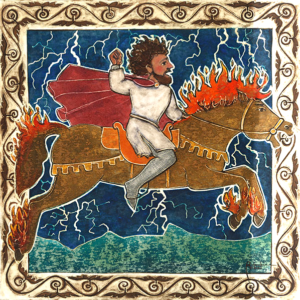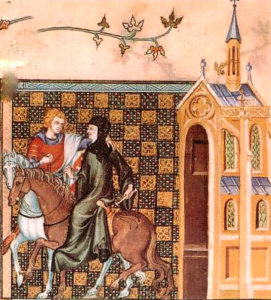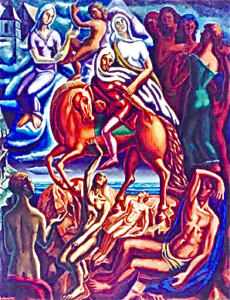
The legend of Count Arnau Pyrenees
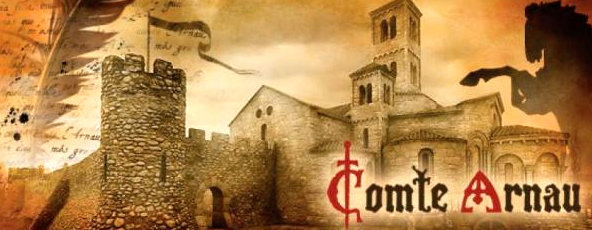
The legend of Count Arnau in the Pyrenees
The legend of Count Arnau is the quintessential myth of medieval Catalonia. It is based on a popular song that has survived the passage of time. According to tradition, many centuries ago, a certain Count Arnau committed two sins: to succumb to the pleasures of the flesh with an abbess and not paying his vassals for some work they had done for him. The consequence was a punishment that apparently still goes on: to ride eternally on a black horse, accompanied by a group of demonic dogs.
Count Arnau is the most popular myth in Catalonia. It’s the most discussed and most commented on, the most passionately representative and emblematic of the Ripollès region, and also one of the most genuine legends in the Pyrenees. In fact, it is one of the most original legends created by the legendary Catalan culture.
Elvira
According to legend, Count Arnau was a nobleman in the Mataplana de Gombrèn family, located in the Pyrenees, where he lived during the first half of the 14th century. Arnau de Mataplana was forced to marry at the age of 15 with Elvira, who was twice his age and she unattractive.
Riquilda
Attracted by another girl named Riquilda or Adelaisa, Arnau abandoned his wife. But at that time Requilda was forced to profess at the monastery of Sant Joan de les Abadesses. Where she finally died of grief.
One stormy night, on hearing of her death. Count Arnau went to the monastery of Sant Joan de les Abadesses and stole the woman’s body. Arnau, crazed with grief, while riding with the body of his beloved in his arms, dropped it off a cliff.
Devilish dogs
For all of this, he was condemned to ride throughout eternity, throughout his domain. During late evenings of lightning storms. Arnau comes out of hell as a sorrowful soul. Carrying a nun who was his beloved, on a black horse flaming through its mouth and eyes. He’s always accompanied by a group of devilish dogs that bark sinisterly. Drawing fire through their eyes and mouths and ears, similar to his horse. Which one isn’t sure if it runs or flies as an unrestful spirit.
On stormy nights. There are many people in the Pyrenees who think they see the excited nobleman riding through the air. They shiver inside their beds when they hear the doors and windows creak, due to the wind that rises when Arnau is raging like lightning. To free themselves, they hide beneath the sheets, make the signal of the cross, and pray to Father-Nostro.
Beyond the legend, Count Arnau is also a literary character whose origin is in a traditional Catalan song that may have appeared in Ripoll in the late 16th century.
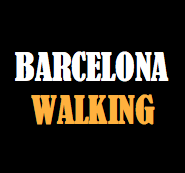 BarcelonaWalking Barcelona Hiking Barcelona Montserrat Costa Brava Pyrenees
BarcelonaWalking Barcelona Hiking Barcelona Montserrat Costa Brava Pyrenees